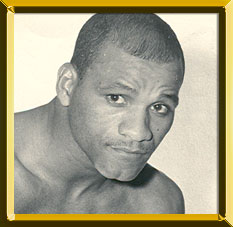
OF ALL THE great and mighty warriors the city of Philadelphia has produced, Harold Johnson is considered the best technical fighter to emerge from "The City of Brotherly Love." In fact, some experts consider him the best pure technician ever.
Johnson's father, Phil, had been a boxer, but Johnson learned the craft in the Navy, and once boxing an exhibition with Hall-of-Famer Billy Conn. Johnson turned pro in 1946 and scored knockouts in 15 of his first 23 fights. That's almost half of his career 32 knockouts. But with such outstanding skill, Johnson didn't need to rely on power.
After winning 24 straight bouts, Johnson dropped a 10-round decision to Archie Moore in 1949, it was the first of their five meetings. Johnson rebounded and scored decision wins over contenders Henry Hall, Jimmy Bivins and Bert Lytell. Fighting at both light heavyweight and heavyweight, Johnson opened the 1950 campaign by getting stopped by future Hall-of-Famer Jersey Joe Walcott.
Johnson fought Moore three times in a four-month span in late-1951 and early-1952, winning just once. Still, Johnson marched on, posting wins over Clarence Henry, Bob Satterfield, Nino Valdes and Ezzard Charles, another future heavyweight champ and Hall-of-Famer.
In 1954, Johnson met Moore again and this time Archie's light heavyweight title was at stake. Johnson dropped Moore in the 10th round and was ahead on the cards after 13 rounds. But Moore summoned a frenzied attack to retain the title with a 14th-round knockout.
It would be seven years before Johnson had another opportunity to challenge for the title and this came only after the NBA withdrew recognition of Moore as champion. Fighting for the vacant crown in 1961, Johnson stopped veteran contender Jesse Bowdry in nine rounds. Johnson gained universal recognition as light heavyweight champion on May 12, 1962, when he decisioned Doug Jones over 15 rounds. He was almost 34.
After one successful title defense, Johnson lost the crown to Willie Pastrano in 1963. Johnson fought sporadically until 1968 and then retired. In 1971, he made a one-bout comeback and was stopped by contender Herschel Jacobs.
Born: Aug. 9, 1928
Bouts: 87
Won: 76
Lost: 11
Draw: 0
KOs: 32
Induction: 1993
Harold Johnson
